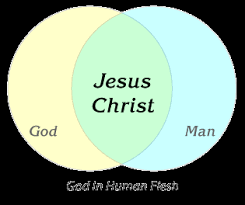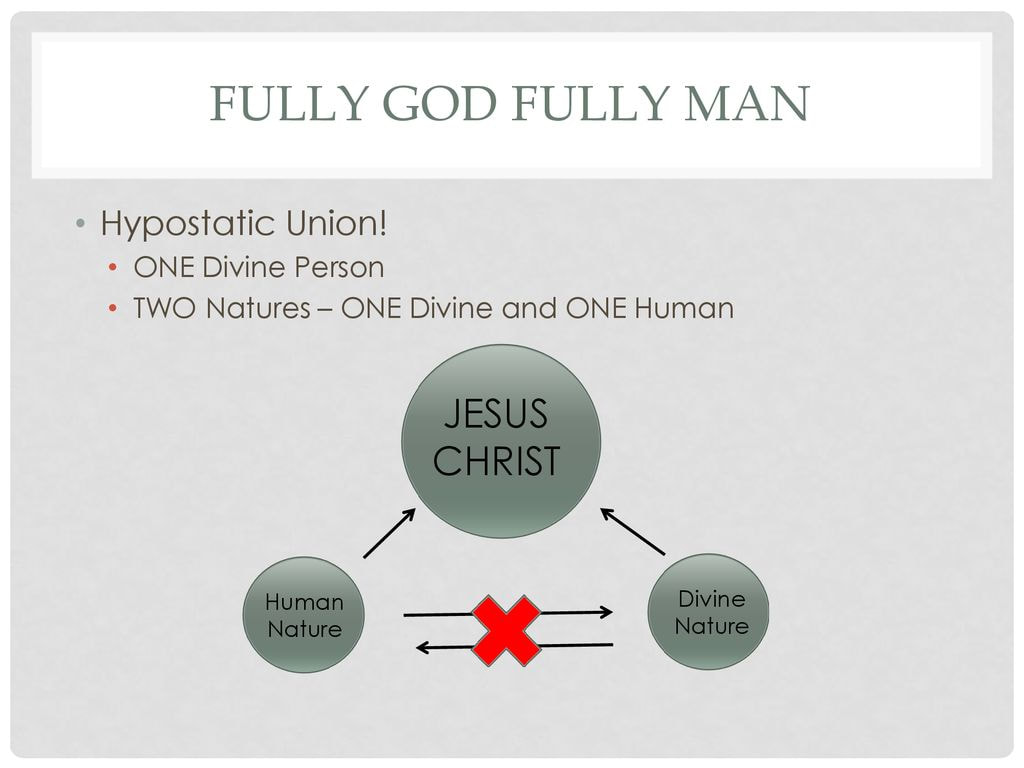Jesus is also given titles that are unique to YHWH (the formal name of God) in the Old Testament. The Old Testament title “redeemer” (Psalm 130:7; Hosea 13:14) is used of Jesus in the New Testament (Titus 2:13; Revelation 5:9). Jesus is called Immanuel—“God with us”—in Matthew 1. In Zechariah 12:10, it is YHWH who says, “They will look on me, the one they have pierced.” But the New Testament applies this to Jesus’ crucifixion (John 19:37; Revelation 1:7). If it is YHWH who is pierced and looked upon, and Jesus was the one pierced and looked upon, then Jesus is YHWH. Paul interprets Isaiah 45:22-23 as applying to Jesus in Philippians 2:10-11. Further, Jesus’ name is used alongside God’s in prayer “Grace and peace to you from God our Father and the Lord Jesus Christ” (Galatians 1:3; Ephesians 1:2). This would be blasphemy if Christ were not deity. The name of Jesus appears with God’s in Jesus’ commanded to baptize “in the name [singular] of the Father and of the Son and of the Holy Spirit” (Matthew 28:19; see also 2 Corinthians 13:14).
Actions that can be accomplished only by God are credited to Jesus. Jesus not only raised the dead (John 5:21, 11:38-44) and forgave sins (Acts 5:31, 13:38), He created and sustains the universe (John 1:2; Colossians 1:16-17). This becomes even clearer when one considers YHWH said He was alone during creation (Isaiah 44:24). Further, Christ possesses attributes that only deity can have: eternality (John 8:58), omnipresence (Matthew 18:20, 28:20), omniscience (Matthew 16:21), and omnipotence (John 11:38-44).
Now, it is one thing to claim to be God or to fool someone into believing it is true, and something else entirely to prove it to be so. Christ offered many miracles as proof of His claim to deity. Just a few of Jesus’ miracles include turning water to wine (John 2:7), walking on water (Matthew 14:25), multiplying physical objects (John 6:11), healing the blind (John 9:7), the lame (Mark 2:3), and the sick (Matthew 9:35; Mark 1:40-42), and even raising people from the dead (John 11:43-44; Luke 7:11-15; Mark 5:35). Moreover, Christ Himself rose from the dead. Far from the so-called dying and rising gods of pagan mythology, nothing like the resurrection is seriously claimed by other religions, and no other claim has as much extra-scriptural confirmation.
There are at least twelve historical facts about Jesus that even non-Christian critical scholars will admit:
1. Jesus died by crucifixion.
2. He was buried.
3. His death caused the disciples to despair and lose hope.
4. Jesus’ tomb was discovered (or was claimed to be discovered) to be empty a few days later.
5. The disciples believed they experienced appearances of the risen Jesus.
6. After this, the disciples were transformed from doubters into bold believers.
7. This message was the center of preaching in the early Church.
8. This message was preached in Jerusalem.
9. As a result of this preaching, the Church was born and it grew.
10. Resurrection day, Sunday, replaced the Sabbath (Saturday) as the primary day of worship.
11. James, a skeptic, was converted when he also saw the resurrected Jesus.
12. Paul, an enemy of Christianity, was converted by an experience which he believed to be an appearance of the risen Jesus.
Even if someone were to object to this specific list, only a few are needed to prove the resurrection and establish the gospel: Jesus’ death, burial, resurrection, and appearances (1 Corinthians 15:1-5). While there may be some theories to explain one or two of the above facts, only the resurrection explains and accounts for them all. Critics admit that the disciples claimed they saw the risen Jesus. Neither lies nor hallucinations can transform people the way the resurrection did. First, what would they have had to gain? Christianity was not popular and it certainly did not make them any money. Second, liars do not make good martyrs. There is no better explanation than the resurrection for the disciples’ willingness to die horrible deaths for their faith. Yes, many people die for lies that they think are true, but people do not die for what they know is untrue.
In conclusion, Christ claimed He was YHWH, that He was deity (not just “a god” but the one true God); His followers (Jews who would have been terrified of idolatry) believed Him and referred to Him as God. Christ proved His claims to deity through miracles, including the world-altering resurrection. No other hypothesis can explain these facts. Yes, the deity of Christ is biblical.
Scripture is clear that Jesus is God (John 20:28; Titus 2:13; Hebrews 1:8), and it is equally clear that He is truly human (Romans 1:2–4; 1 John 4:2–3). Jesus claimed the divine name (John 8:58) and did things that only God can do (Mark 2:1–12; Luke 7:48–50). But Jesus also displayed the weaknesses and vulnerabilities common to humanity (Luke 19:41; John 19:28).
The belief that Jesus is both God and man is of fundamental importance. The apostle Paul wrote that an affirmation of the divinity of Jesus is required to be saved (Romans 10:9), and the apostle John provided a sober warning that those who deny Christ’s true humanity are promoting the doctrine of antichrist (2 John 1:7).
The Triune God of the Bible has existed and reigned from all eternity, and the second Person of the Trinity, the Son, took on human flesh at a particular point in time (Luke 1:35; Hebrews 1:5). God the Son added a sinless human nature to His eternally existent divine nature. The result was the Incarnation. God the Son became a man (John 1:1, 14). Hebrews 2:17 gives the reason that Jesus had to be both God and man: “He had to be made like them, fully human in every way, in order that he might become a merciful and faithful high priest in service to God, and that he might make atonement for the sins of the people.” The Son of God took on human flesh to provide redemption to those under the law (Galatians 4:4–5).
At no time did Jesus ever cease to be God. Although He was made fully human, there was never a point when He abrogated His divine nature (see Luke 6:5, 8). It is equally true that, after becoming incarnate, the Son has never ceased to be human. As the apostle Paul wrote, “For there is one God, and there is one mediator between God and men, the man Christ Jesus” (1 Timothy 2:5, emphasis added). Jesus is not half-human and half-divine. Rather, He is Theanthropos, the God-man. The Lord Jesus Christ is one eternally divine Person who will forever possess two distinct yet inseparable natures: one divine and one human.
"The Word" (Logos) in John 1 is referring to Jesus. Jesus is the total Message—everything that God wants to communicate to man. The first chapter of John gives us a glimpse inside the Father/Son relationship before Jesus came to earth in human form. He preexisted with the Father (verse 1), He was involved in the creation of everything (verse 3), and He is the "light of all mankind" (verse 4). The Word (Jesus) is the full embodiment of all that is God (Colossians 1:19; 2:9; John 14:9). But God the Father is Spirit. He is invisible to the human eye. The message of love and redemption that God spoke through the prophets had gone unheeded for centuries (Ezekiel 22:26; Matthew 23:37). People found it easy to disregard the message of an invisible God and continued in their sin and rebellion. So the Message became flesh, took on human form, and came to dwell among us (Matthew 1:23; Romans 8:3; Philippians 2:5–11).
Jesus told a parable in Luke 20:9–16 to explain why the Word had to become flesh. “A man planted a vineyard, rented it to some farmers and went away for a long time. At harvest time he sent a servant to the tenants so they would give him some of the fruit of the vineyard. But the tenants beat him and sent him away empty-handed. He sent another servant, but that one also they beat and treated shamefully and sent away empty-handed. He sent still a third, and they wounded him and threw him out.
“Then the owner of the vineyard said, ‘What shall I do? I will send my son, whom I love; perhaps they will respect him.’ But when the tenants saw him, they talked the matter over. ‘This is the heir,’ they said. ‘Let’s kill him, and the inheritance will be ours.’ So they threw him out of the vineyard and killed him. What then will the owner of the vineyard do to them? He will come and kill those tenants and give the vineyard to others.”
In this parable, Jesus was reminding the Jewish leaders that they had rejected the prophets and were now rejecting the Son. The Logos, the Word of God, was now going to be offered to everyone, not just the Jews (John 10:16; Galatians 2:28; Colossians 3:11). Because the Word became flesh, we have a high priest who is able to empathize with our weaknesses, one who has been tempted in every way, just as we are—yet He did not sin (Hebrews 4:15).












 RSS Feed
RSS Feed
























































